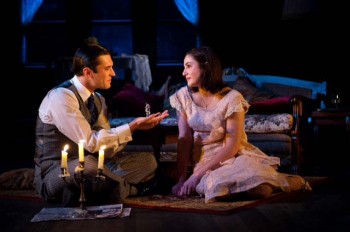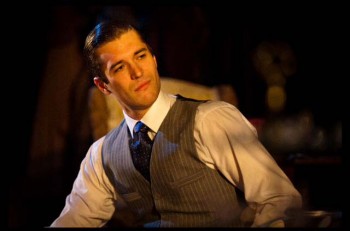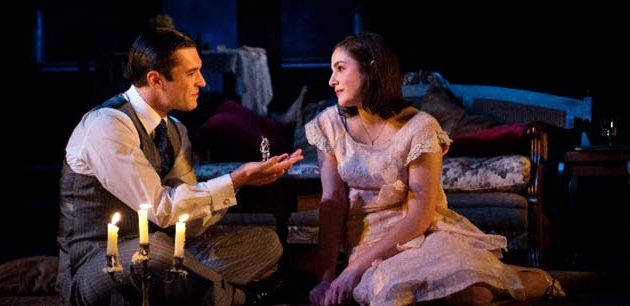Complex and fragile – The Glass Menagerie

In 1944 a young Tennessee Williams rose to fame with his breakthrough play: The Glass Menagerie. Williams is now considered one of the most influential and pre-eminent playwrights of the twentieth century and The Glass Menagerie: an American classic.
It is said that for Tennessee Williams, “everything in his life is in his plays, and everything in his plays is in his life”. In The Glass Menagerie, his most overtly autobiographical play, this is indeed the case. It is hard to believe that a playwright who wasn’t drawing on his own personal experience could conjure up this ‘memory play’, which is at once complex and fragile.
The State Theatre Company of South Australia’s production of The Glass Menagerie, which opened at the Dunstan Playhouse last night, is an enchanting interpretation of the ‘memory play’ about the Wingfield family. Williams gives us a reminiscing narrator figure, Tom Wingfield (Anthony Gooley) who is clearly a surrogate for the author. (In fact, prior to adopting the professional name ‘Tennessee’ in 1939, Williams was known as Thomas.) The Mother and older sister, Amanda (Deidre Rubenstein) and Laura Wingfield (Kate Cheel), also bear striking similarities to Williams’ loved ones.
“The scene is memory and is therefore non-realistic. Memory takes a lot of poetic license”, Tom informs the audience, as the set – an apartment in St. Louis during the Great Depression – literally creates itself in a surreal and almost magical manner. The unobtrusive music, composed by Stuart Day, which is tactfully scattered throughout the play, extends the notion that the action unfolding is more memory or dream than realism.
The direction of Adam Cook in this, his final production with the State Theatre Company, is engaging and encourages the ensemble to flourish. The use of space, expertly conceptualised in Victoria Lamb’s design, is well utilised and complimented by Mark Pennington’s lighting design.

There is an appreciable understanding between each member of the skilled ensemble, and it is their combined effort, rather than individual performances, that proves the greatest asset for the production. Anthony Gooley’s Tom is honest, likeable and possesses a quick wit. He superbly captures the cabin fever, frantic frustrations and inner turmoil of a would-be poet, tied down by a low paying factory job and obligation to his family. His nightly escapism trips to the cinema are a particular point of exasperation for his mother, Amanda Wingfield. Deidre Rubenstein’s portrayal of this former Southern belle, forever lamenting a luxurious plantation past (that may or may not have existed as she remembers it), is wonderfully overbearing. Her old-world southern grandeur is particularly evident and enjoyable in the second act, and the suffocating over-protection of her children becomes astronomical at the climax.
The second act chiefly belongs to Laura Wingfield and her mysterious gentleman caller. Kate Cheel portrays Laura’s physical disability with tact. Her physical misfortunes, however, are not as crippling as her pathological shyness. She seems incapable of matching her mother’s former glory – once receiving seventeen gentlemen callers in one day – and so, like Tom, Laura has found her own form of escapism: cultivating her ornamental glass menagerie.
Nic English’s mysterious gentleman caller, Jim O’Connor, is a wonderful foil for the Wingfield family. “He is the long-delayed but always expected something that we live for” and his attendance at dinner, at Tom’s request, adds another dimension to the second act. His charm and charisma evidently excite Amanda while managing to coax, perhaps a little cruelly, some courage and hope from Laura. His candle-lit scene with Laura was a highlight.
The State Theatre Company of South Australia has produced a polished piece of theatre in The Glass Menagerie. The production provides a thought provoking, intimate and entertaining insight into the life of young Tennessee Williams. Highly recommended.


